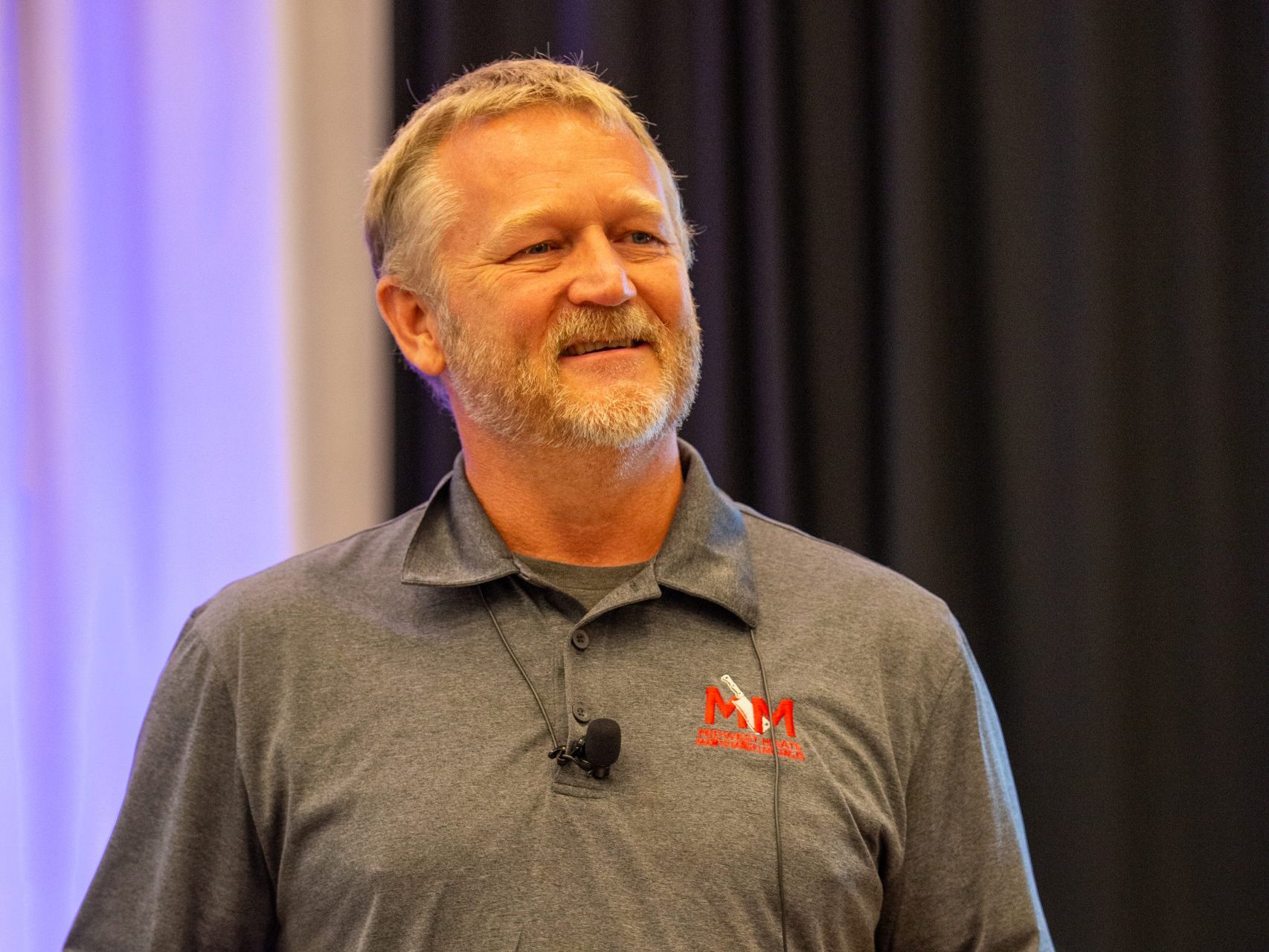Custom processor looks back on history to provide service today

“God gave us these creatures for this purpose and at a minimum we owe them as much respect as we can give them up to the time of consumption.”
Troy Leith, owner of Midwest Meats in Abilene, Kansas, a family owned and operated custom processor and craft butcher shop, recently told attendees at Cattle U in Manhattan, Kansas, about their endeavor.
“Our whole business statement and mission is farm to family,” Leith said. “We’re in this to supply our local area with the best product out there.”
The Leithes operate a mobile harvesting unit, bringing the initial stages of the butchering process to the farm or ranch, and processing finishes at their shop in Abilene. They started before COVID hit in 2020, and from the beginning aimed to keep their mission of farm to family.
“One of the challenges is keeping the family business or the family farm or the family ranch intact,” he said. “And the other challenge we’re facing is small town Kansas—if you lose something it probably ain’t coming back because it’s too difficult.”
Leith knows this firsthand as his group is the fourth entity to try to bring meat processing back into Abilene since the last one burnt in the 1980s.
He’s persevered and shares his message with crowds that will listen and believes problems like this need to be figured out.
“We’re in this to supply our local area with the best product out there,” he said. “The best protein source, safest protein source is right here in the Midwest. There’s no better production of red meat proteins than there is right here.”
Leith wants safe meat, animal welfare and “all the things” involved with getting inspected meats to retail shelves. He believes no one cares for the animals more than farmers and ranchers.
“Our position is the more local we get, the fewer hands it’s in and the more guarantee you have of what it is,” he said. “I also believe that we’ve reached a real nice point where there’s a lot of people who really want to know where their food comes from.”
Leith teams up with producers and wants them to be proud of the product that ends up in his retail cases.
Leith said they chose to do on-farm mobile harvesting because it’s part of their mission to bring producers closer to consumers. And to be able to do that in Dickinson County, they have to be in the economic center of the area.
“If we want to develop any retail trade, we have to be in Abilene and Abilene has zoned out killing in their city,” he said. “And if you check your local coding, you’re going to be shocked how many towns and counties have that.”
They’ve managed to find a place where it works for them, but not after a “tremendous amount of time and effort” working with city officials. There are areas where they don’t want slaughterhouses in their backyards.
There’s not many who do mobile harvesting and the Leiths discovered U.S. Department of Agriculture federal meat inspection has a really good playbook for on-farm harvest. They’re in the middle of the inspection process and are operating under custom harvest regulations.
At some places, it’s become a spectator sport and Leith has turned it into an educational opportunity.
“Whoever gets to see their carcass hanging before it leaves their farm? Nobody,” he said. “And depending on your generation, a lot of folks are saying, ‘Yeah, this is so refreshing because this how used to be done.’”
Leith also said the generation gap between the “how we used to do it” and the “new, innovative, unusual way to do it” is big.
The mobile unit is a surgically clean trailer that operators close the door on before any of the skin comes off. The clean space is 24-feet with segments for each part of the harvest process. The animals are slid up the skinning cradle and if the tongue is harvested it’s done at this point. Once skinned, the carcass is chained up and pushed into the trailer. Once in the closed environment, the hide comes off and eventually the carcass is split in half. They’re then weighed. Once in the cooler segment of the trailer they’re anchored to the floor for transport to the building.
While still on the farm site, they’ll get a plan for disposal of the offal and bones. They try not to concentrate the matter in one area and will often dig a trench for the offal.
“Six months later there will be a little more fertile soil than was even there,” he said. “Lot of times we’ll take the bones, heads and the legs to the dump or transfer station because they might be around a little bit longer.”
Once back at the building, the carcass goes into the cooler via a rail system. It goes into one cooler for aging and eventually to a smaller cooler where it’s prepared for processing. Leith’s mission is to get a clean carcass in the end.
Despite the challenges he’s faced and the risk of doing something different, Leith has found a way to embrace the risk.
“Because there is a lot of risk,” he said.
But if it works for them, they’ve done their part to keep food local.
For more information about Midwest Meats visit midwestmeatsabilene.com.
Kylene Scott can be reached at 620-227-1804 or [email protected].



